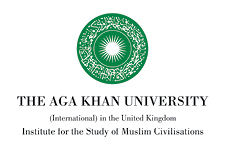Lorenz Nigst is an assistant professor at the Centre for Digital Humanities (CDH) and manager of the KITAB corpus. An Arabist by training, Lorenze is particularly interested in religious thought, prayer and devotional literature, premodern linguistic thought, and premodern writerly practices and forms of knowledge organisation.
Since his participation in a research project at the University of Vienna centred on the veneration of local saints in Southern Tunisia and owing to his PhD work on Ibn Taymiyya, Lorenz has become especially fascinated with the subject of Islamic sainthood, different ideas of what constitutes belief and closeness to God, the notion of an unseen world, contact with it, and with the different forms of authority that result from it. Based on project work for the Austrian Academy of Sciences on contemporary Druze understandings of reincarnation, a further research focus of Lorenz's is historical Druze religious and devotional poetry, and he is currently working on a manuscript-based corpus of relevant material which to date comprises about 10,000 lines of poetry.
In his recent work for KITAB, Lorenz has been focussing on how premodern authors thought about their own activities and the structural relations between texts that resulted from these activities.
In terms of digital work, Lorenz's particularly interested in the intersection of philology and computational methods, OCR/HTR, digital editing, the problem of search, and in how computational tools can be leveraged to categorise and visualise relations between texts.
Research interests
Religious thought
Sainthood and saint cults
Prayer and devotional literature
Premodern writerly practices
Premodern forms of knowledge organisation
Premodern linguistic thought
Computational text analysis
HTR/OCR
Digital editing
Selected publications:
Nigst, L. (2024). Baraka: From Being to Well-Being. In Krawietz, B. & Gauthier, F. (Eds.), Routledge International Handbook of Global Islam and Consumer Culture (pp. 53–64), London and New York: Routledge.
Nigst, L. (2021). The Different Appearance of the Identical: Some Thoughts on How the Druze Discourse on Transmigration (taqammuṣ) Connects Lives. Fartacek, G. (Ed.), Druze Reincarnation Narratives Previous-Life Memories, Discourses, and the Construction of Identities (pp. 72–112). Bern: Peter Lang.
Nigst, L. (2019). Differences Because of Differences: Some Thoughts about ʿImād ad-Dīn al-Wāsiṭī’s Talqīḥ al-afhām fī mujmal ṭabaqāt al-islām, Wiener Zeitschrift für die Kunde des Morgenlandes, 109, 225–249.
Nigst, L. (2019) Druze Reincarnation through Fiction: Anīs Yaḥyā’s novel Jasad kāna lī as a Source for Literary Anthropology, Journal of Arabic and Islamic Studies, 19, 15–34.
Nigst, L (2019). Entering a Gigantic Maze: The Ambivalent Presence of Previous-Life Memories in Druze Discourse,Social Compass, 66 (2) (2019), 273–288.
Nigst, L. (2013). He Would Bite Them Really Heavily: Maḥmūd Maqdīsh on Madjdhūb Saints, Wiener Zeitschrift für die Kunde des Morgenlandes, 103, 13–45.
Nigst, L. (2013). Highway Luzūmiyyāt Revisited: Some Thoughts About al-Maʿarrī, the Freethinker, Journal of Arabic and Islamic Studies, 13, 41–57.
Personal links
ORCID
Contact
lorenz.nigst@aku.edu


